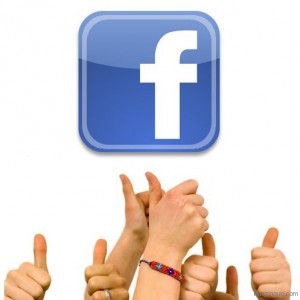Whenever I attend a conference or event on social media there seems to be a frequent occurrence. Someone in the room gets excited, begins to sweat a little, wipes their forehead, and then begins to babble on about much each additional fan or follower is worth. Apparently : SO MUCH MONEY. You know the deal, this aphinony is followed by a loosley constructed PowerPoint deck that mathematically distills the magical chunk change that each new follower creates. And ooooo eeeee it’s so big! You’d be a fool not to go out and spend 100k on generic- key word here being generic- facebook “friend me” ads.
While I understand a bevy of fans can be a powerful route of corporate communication ( much like an email list), but standard economics tells us there is a point where the return is less than the expense of execution. Furthermore, I struggle to see how one can effectively place a dollar value on a single a fan or follower. It’s not that fans aren’t important, it’s just that social media drive to purchase of a single fan is incredibly hard to measure and to arrive at any number forces analysts to make a series of broad generalizations. These generalizations can cause several major problems:
- Generalizations hide important subgroups: The problem with generalizations is that they mask fanatics and laggards. So you attribute X additional revenue dollars to a facebook campaign with Y number of fans. Your fanatic population may make up for 70% of that increased revenue attributed to Facebook- it does not makes sense to evenly distribute the attribution to the overall fan base.
- New Fans may not be as valuable as old fans: Those users who first friend a brand page on Facebook or follow a brand Twitter account are often advocates and potentially higher purchasers. The later waves of fans often are driven to fan based on advertising, promotional activities, or etc. While it’s likely some of the new followers may also be fans of a brand, it’s not guaranteed that their purchase rate is the same as old fans. In some cases, the opposite may even be true, that news fans actually generate higher revenue than old.
- It’s difficult to attribute all Social Media revenue: Not all revenue earned by Facebook can be back-tracked to the social media site. A user may see a promotion or product on the Facebook page, and go out of the world that is Facebook and hand type the website address to purchase. This user would appear as a standard web purchaser, rather than a social media driven purchaser. Thus, the revenue attributed to the site will always be greater than measured.
- Traditional media suffers from the same problems: If you run a TV ad it is difficult to say, this ad alone made me X revenue. There are always external indicators that can drive up revenue and create metric bias.
While ROI metrics will always be an important of an business initiative, I do not yet to see the value of attaching a dollar amount to a single fan. In fact as I write about this I am further resolved in my thinking that companies should look at social media not solely as a revenue driven dollar sign, but as a brand building and cost- saving initiative. I also realize as much as I want it to be, data will never be perfect. Le sigh. Such are the Sunday troubles of one Anna OBrien, social media geek and general statistics addict.


